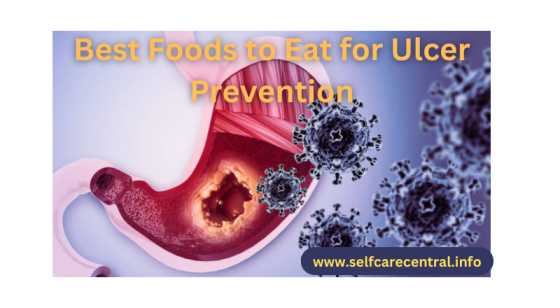1.Comprehending Ulcers and Their Origins
1.1 Defining Ulcers
Ulcers are sores that form on the stomach, small intestine, or esophagus lining. They often cause discomfort, including burning sensations, bloating, and nausea. A personal anecdote illustrates this: a relative likened her ulcer pain to swallowing a scorching ember.
1.2 Primary Ulcer Causes
The main factors leading to ulcers include:
- Helicobacter pylori (H. pylori) infection
- Prolonged use of nonsteroidal anti-inflammatory drugs (NSAIDs)
- Excessive alcohol intake
- Tobacco use
- Stress (which can worsen existing ulcers)
1.3 Dietary Impact on Ulcer Prevention and Management
While diet isn’t a direct cause of ulcers, it significantly influences prevention and treatment. Consuming appropriate foods can safeguard the stomach lining and facilitate healing, whereas certain items may aggravate ulcers and hinder recovery.
Read more: Improving Sperm Motility: Tips and Techniques
2.Foods That Aid Ulcer Healing
2.1 Fiber-Rich Options
Fiber benefits gut health and ulcer prevention by reducing stomach acid and promoting beneficial bacteria growth. Good choices include:
- Whole grains (brown rice, oatmeal, whole wheat bread)
- Legumes (lentils, chickpeas, black beans)
- Vegetables (broccoli, carrots, sweet potatoes)
A personal tip: starting the day with oatmeal and berries can help soothe the stomach.
2.2 Probiotic-Rich Foods
Probiotics are beneficial bacteria that can combat H. pylori and support gut health. Sources include:
- Yogurt
- Kefir
- Sauerkraut
- Kimchi
2.3 Antioxidant-Rich Fruits and Vegetables
Antioxidants protect cells from damage and support ulcer healing. Good options are:
- Berries (blueberries, strawberries, raspberries)
- Leafy greens (spinach, kale)
- Colorful vegetables (bell peppers, sweet potatoes)
Read more: The Best Diet Plan to Avoid Kidney Stones
3.Nutrients Supporting Digestive Health
3.1 Vitamin A and Beta-Carotene
These nutrients aid in maintaining and repairing the digestive tract lining. Sources include:
- Sweet potatoes
- Carrots
- Spinach
- Apricots
3.2 Zinc and Selenium
These minerals support immune function and wound healing. Find them in:
- Lean meats
- Seafood
- Nuts and seeds
3.3 Omega-3 Fatty Acids
Omega-3s have anti-inflammatory properties that can soothe the digestive system. Sources include:
- Fatty fish (salmon, mackerel, sardines)
- Flaxseeds
- Chia seeds
- Walnuts
4.Foods to Avoid for Ulcer Prevention
4.1 Acidic Foods
Acidic foods can irritate the stomach lining and worsen ulcer symptoms. Limit or avoid:
- Citrus fruits and juices
- Tomatoes and tomato-based products
- Vinegar
4.2 Spicy Foods
While not problematic for everyone with ulcers, spicy foods can cause discomfort for some. If they cause issues, reduce consumption of:
- Hot peppers
- Curry
- Hot sauces
4.3 High-Fat and Fried Foods
These foods can increase stomach acid production and delay stomach emptying. Limit:
- Fast food
- Fried foods
- High-fat dairy products
5.Beverages Affecting Ulcer Health
5.1 Beneficial Drinks for Ulcer Prevention
Some beverages can soothe the stomach and promote healing:
- Green tea
- Chamomile tea
- Ginger tea
A personal recommendation: a cup of warm chamomile tea before bed can help calm the stomach and improve sleep.
5.2 Beverages to Limit or Avoid
Certain drinks can irritate ulcers or increase acid production:
- Alcohol
- Caffeinated beverages (coffee, some teas, energy drinks)
- Carbonated drinks
5.3 Importance of Hydration
Staying well-hydrated is crucial for overall health and can help dilute stomach acid. Aim to drink plenty of water throughout the day.
6.Meal Planning for Ulcer Prevention
6.1 Balanced Plate Composition
A balanced meal should include:
- Lean protein
- Complex carbohydrates
- Plenty of vegetables
- Moderate amounts of healthy fats
6.2 Ideal Meal Timing and Frequency
Eating smaller, more frequent meals can help prevent excess acid production. Consider having 5-6 small meals throughout the day instead of 3 large ones.
6.3 Portion Control Strategies
Helpful tips for portion control include:
- Using smaller plates
- Measuring servings
- Eating slowly and mindfully
7.Lifestyle Factors Complementing an Ulcer-Friendly Diet
7.1 Stress Management Techniques
Stress can exacerbate ulcer symptoms, so it’s important to find ways to relax. Options include:
- Meditation
- Deep breathing exercises
- Yoga
A personal note: even 10 minutes of daily deep breathing can help reduce stress.
7.2 Importance of Regular Exercise
Regular physical activity can help reduce stress, improve digestion, and boost overall health. Aim for at least 30 minutes of moderate exercise most days of the week.
7.3 Adequate Sleep and Its Impact on Digestive Health
Getting enough quality sleep is crucial for healing and overall health. Aim for 7-9 hours of sleep each night.
Summary
Preventing and managing ulcers involves eating appropriate foods, avoiding irritants, and maintaining a healthy lifestyle. Incorporating fiber-rich foods, probiotics, and nutrient-dense fruits and vegetables while limiting acidic, spicy, and high-fat foods can create an environment that promotes healing and prevents future ulcers. Remember that individual responses may vary, so finding what works best for you may require some experimentation.
FAQs
Can specific foods cure ulcers?
While no single food can cure ulcers, a balanced, nutrient-rich diet can support healing and help prevent future ulcers.
How long before dietary changes impact ulcer healing?
The timeframe varies, but many people notice improvements within weeks of making dietary changes. Complete healing may take several months.
Are there supplements that can help prevent ulcers?
Some studies suggest probiotics and vitamin C supplements may benefit ulcer prevention, but consult a healthcare provider before starting any new supplements.
Can I enjoy occasional treats on an ulcer-prevention diet?
Yes, moderation is key. If certain foods disagree with you, it’s best to avoid them. However, occasional treats shouldn’t hinder progress if your overall diet is healthy.
How does smoking affect ulcer development and healing?
Smoking can increase ulcer risk, slow healing, and worsen symptoms. Quitting smoking is highly beneficial for digestive health.


